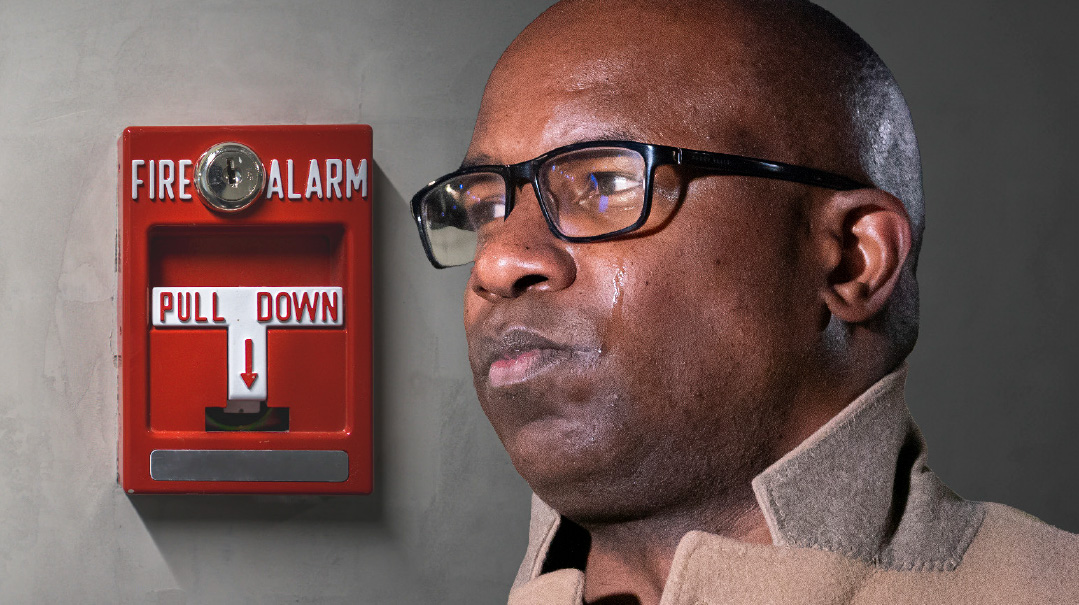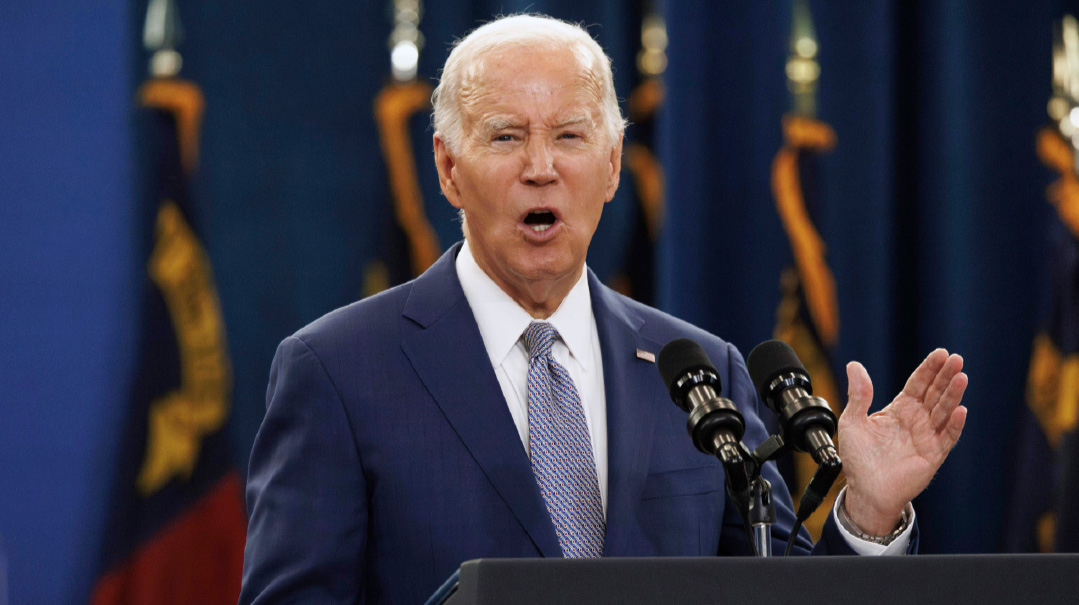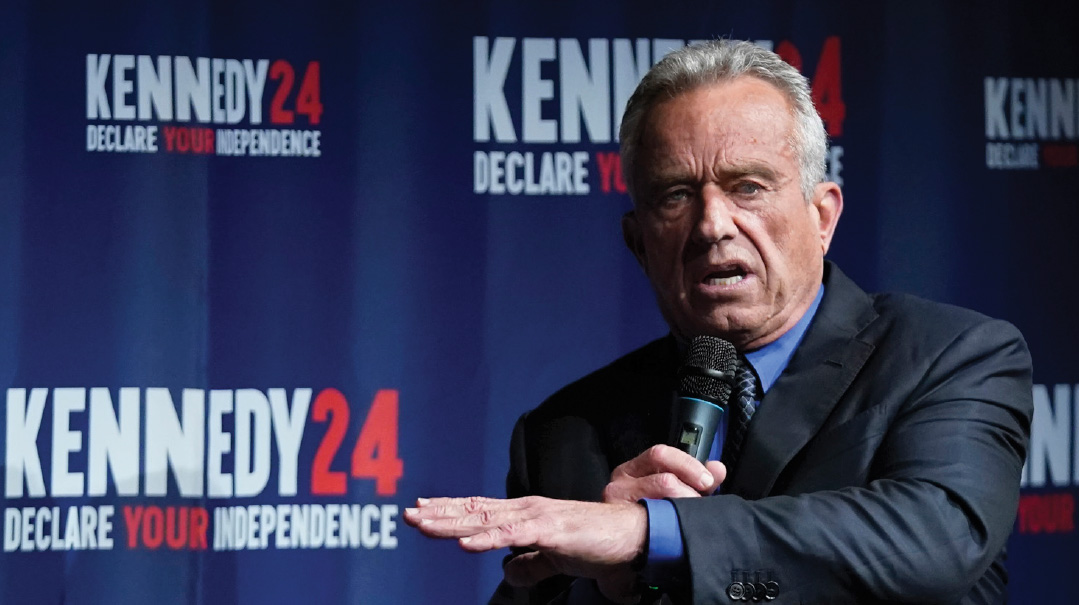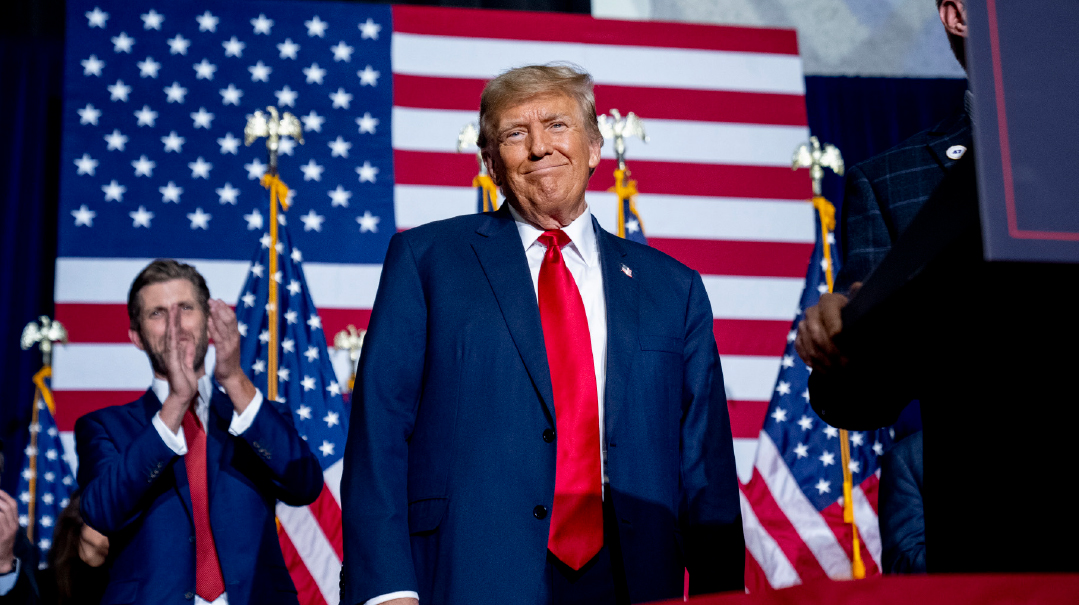Endorsement Dominoes: Who Falls Next, and Why It Matters

So which of these endorsements matters most?
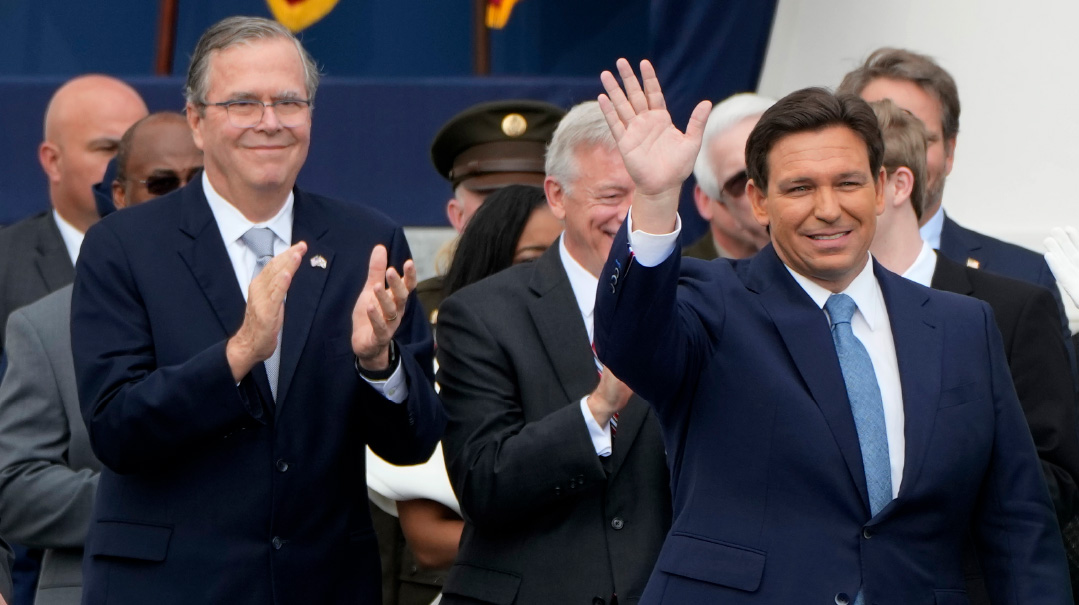
Photo: AP Images
W
hat do an ESPN sports personality, the AFL-CIO, and Twitter co-founder Jack Dorsey all have in common? They joined dozens of others in making presidential endorsements over the last month.
Some of those endorsements have stood out, such as Oklahoma governor Ron Stitt endorsing Ron DeSantis, Indiana governor Eric Holcomb backing Mike Pence, and Senate Minority Leader John Thune supporting Tim Scott. Two candidates have the most endorsements: President Biden is predictably winning over his party, and former president Trump is outpacing his competitors, racking up 56 out of 63 Republicans in the House of Representatives.
With nearly 500 days remaining until the presidential election — and no debates, primaries, or movement in the polls — endorsements are grabbing more than their share of attention. What role do they play?
To understand this, let’s take a step back and think about why endorsements exist, whether they matter, which endorsements truly move the needle, and the timing of this political “thumbs up.”
Why endorsements are sought is simple: attention. Endorsements create a narrative that a candidate has momentum by showcasing the support of a credible person or party. Elected officials, celebrities, clergy, and organizational heads are asked for their endorsements, then paraded out to recite carefully scripted messages. Endorsements nearly always guarantee attention. If politics is viewed as a national sport, endorsements are treated as points on the scoreboard for the recipients.
Do They Matter?
My friends who run campaigns advise that most of these personalities can help momentum, but generally don’t indicate whether a candidate will win or lose. Campaign strategists make one exception — endorsements from other elected officials.
If you are a congressman from an early primary state who gets elected with 250,000 votes, presumably that machine can now transfer those votes to your endorsee. This explains why candidates often react so poorly when they lose out on a fellow elected official’s endorsement. The cost is greater than just attention; it often means lost votes. Trump was furious that Oklahoma governor Stitt endorsed DeSantis. This also explains why many Republicans I’ve talked to are hesitant to endorse at all in a primary. Why antagonize the potential winner?
So which of these endorsements matters most?
Moving the Needle
AOC has declined to endorse Biden. This endorsement matters.
Robert Kennedy Jr., a largely unknown figure, is polling at 15%-plus in many Democratic polls. These are troubling numbers for an incumbent president. And AOC has a national political machine that can turn out votes. Biden has picked up Bernie Sanders, but just as much, he needs the AOCs of the world to back his reelection. Any progressive national figure with this type of draw can move the needle.
On the Republican side, former president Bush — the only living Republican president not running for office — matters. Bush’s base are Republicans who do not necessarily subscribe to the MAGA worldview or far-right ideology. Trump is not going to secure Bush’s endorsement. Jeb Bush, the former president’s brother, has already endorsed DeSantis, and there is no love lost between the Trump and Bush families. A Bush endorsement would help Republicans coalesce around one candidate and block a Trump nomination.
As for presidential candidates currently running — imagine Haley, Kennedy, or Scott deciding their polling numbers are too low and throwing their support to a fellow candidate. Powerful.
When to Endorse
I asked campaign pros when endorsements make the most impact, and they indentified three periods when the timing is auspicious:
Launch: This is the period we are currently in. Immediately show excitement for your campaign by rolling out endorsements of all shapes and sizes.
Before a State Primary: Iowa or New Hampshire politicians’ endorsements right before an election in those states may prove to be great attention-getters.
After a Win: After victory in a primary state is a great time to deliver a knockout blow by trotting out endorsements that “coronate” a candidate.
Numbers Game
Three slaps on the wrist were handed out to elected officials in June by their colleagues. North Carolina Republicans censured Senator Thom Tillis out of dismay at his voting record. The Arizona House of Representatives censured their Democratic colleague Stephanie Stahl Hamilton for hiding two House bibles as a prank. The US House of Representatives censured Adam Schiff (D-CA) for his actions as chair of the House Intelligence Committee.
Censures have a long history in America; Presidents Lincoln, Jackson, Clinton, and others have been sanctioned this way. But the current frequency of these votes is unprecedented.
Censures are considered the political form of a slap on the wrist, although in some cases they can have more formal consequences such as losing a committee assignment. Censures that pass are rare; only 33 members of Congress have ever been formally censured.
Impeachment proceedings similarly occurred throughout American history, but with rarer frequency than we have seen in the last three decades. Is this the latest sign of intensified political partisanship?
Long March
“We can’t wait that long” was the reaction of a group of New York yeshivah advocates after hearing that state funding to provide free lunch for all students could take years more to pass. I often hear this reaction in response to my calls for activism for such game-changing programs as security guards for our schools, free lunch for all, or bigger items such as vouchers. But anyone wanting to accomplish communal goals in the political arena must understand that real goals take real time. I often cite one name to inspire patience in acitivists: Greg Watson.
In 1982, 19-year-old Greg Watson was writing a college essay about the Constitution. In his research, Watson stumbled upon a 1789 unratified amendment authored by James Madison that only permitted salary increases for Congress to take effect subsequent to the next election, to ensure constituents signed off on the new raise.
Watson realized that this was unratified — which meant that three-quarters of the states hadn’t voted it into law. But they still could.
Watson got to work and began to contact every state legislature. First Maine passed it, then Colorado, and then it snowballed. In 1992, 38 states had passed the amendment, and the 27th amendment was ratified into law.
We can take many lessons from the saga of a college student who successfully ratified a 200-year-old Constitutional amendment, but I believe the most important lesson is this: Policy takes time, and in politics, to the patient go the spoils.
(Originally featured in Mishpacha, Issue 967)
Oops! We could not locate your form.


